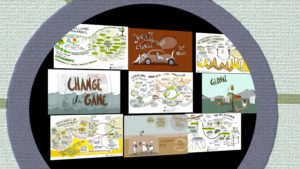Looking for content and documents from our Gatherings? Login
January 2026 Member Call: Matt Sigelman
 By redesigning work, strengthening foundational capabilities, and enabling people to take on more complex, higher-impact tasks, organizations can use AI to make work and workers worth more, not More »
By redesigning work, strengthening foundational capabilities, and enabling people to take on more complex, higher-impact tasks, organizations can use AI to make work and workers worth more, not More »
Why Your AI Strategy Might Be Destroying Your Organization's Future (And What to Do Instead)
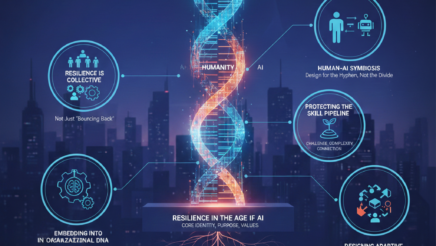 This year, our shared inquiry focuses on Resilience in the Age of AI how organizations can survive and thrive amid AI-driven disruption while preserving their core identity, purpose, and values. Across our gatherings to date, several powerful themes have emerged. Below are five key insights each tied to concrete challenges organizations are facing right now around skills, structures, and processes in an AI-enabled More »
This year, our shared inquiry focuses on Resilience in the Age of AI how organizations can survive and thrive amid AI-driven disruption while preserving their core identity, purpose, and values. Across our gatherings to date, several powerful themes have emerged. Below are five key insights each tied to concrete challenges organizations are facing right now around skills, structures, and processes in an AI-enabled More »
How strong is your organizational Skill Code?
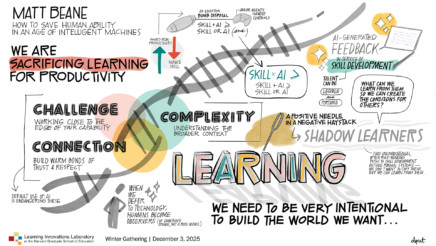 The paradox few are talking about is that while AI delivers 10-15% productivity gains for 80% of your workforce, it's simultaneously dismantling the expert-novice relationships that have built human capability for centuries. This means that new employees must no longer have development opportunities creating a situation where they are in effect entering the organization at the mid-career level with little or no experience or pathways for More »
The paradox few are talking about is that while AI delivers 10-15% productivity gains for 80% of your workforce, it's simultaneously dismantling the expert-novice relationships that have built human capability for centuries. This means that new employees must no longer have development opportunities creating a situation where they are in effect entering the organization at the mid-career level with little or no experience or pathways for More »
Does your organization have an AI pre-deployment review process? If not, you should.
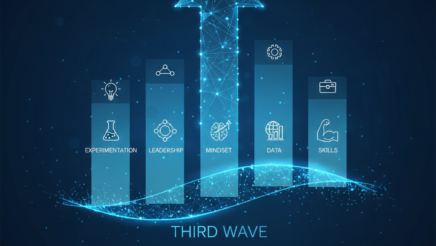 Organizations fail when they treat AI adoption as the endpoint rather than one step in a continuous strategy. Measuring success by usage rates alone—celebrating "more people using AI"—confuses the how with the what. Before deploying any AI tool, leaders must establish a pre-deployment review process that requires clear answers to all five questions before any AI tool goes live—and build ongoing monitoring to ensure the answers remain valid as systems More »
Organizations fail when they treat AI adoption as the endpoint rather than one step in a continuous strategy. Measuring success by usage rates alone—celebrating "more people using AI"—confuses the how with the what. Before deploying any AI tool, leaders must establish a pre-deployment review process that requires clear answers to all five questions before any AI tool goes live—and build ongoing monitoring to ensure the answers remain valid as systems More »
Join us for the June 10th LILA Summit: Resilience in the Age of AI
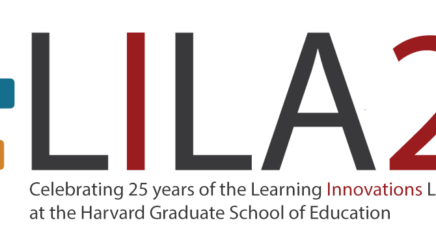 In this context of mounting complexity, uncertainty, and fatigue, resilience is no longer just a personal trait—it is an essential strategy and practice, evolving alongside the intelligent systems that are rewiring our environments in real time. The challenge before us is not simply to withstand disruption, but to harness and adapt to it. Resilience is about the ability to prepare for (readiness), withstand and manage (response), and recover/grow from (resurgence) disruptions. All three are interconnected stages that together define and strengthen resilience in various contexts. This year, we will explore what fosters resilience at every level—individual, team, and organization—in a world where learning, adaptation, and decision-making are increasingly augmented by More »
In this context of mounting complexity, uncertainty, and fatigue, resilience is no longer just a personal trait—it is an essential strategy and practice, evolving alongside the intelligent systems that are rewiring our environments in real time. The challenge before us is not simply to withstand disruption, but to harness and adapt to it. Resilience is about the ability to prepare for (readiness), withstand and manage (response), and recover/grow from (resurgence) disruptions. All three are interconnected stages that together define and strengthen resilience in various contexts. This year, we will explore what fosters resilience at every level—individual, team, and organization—in a world where learning, adaptation, and decision-making are increasingly augmented by More »
Upcoming Gatherings
OCT 7-8 (Tues/Wed) Gathering – From Organisms to Organizations in the Age of AI
DEC 3-4 (Wed/Thurs) Gathering – Shaping Organizations for Resilience in the Age of AI
March 11-12 (Wed/Thurs) Gathering – Fostering Resilient Organizational Cultures for the Age of AI
JUNE 10-11 (Wed/Thurs) SUMMIT – Virtual
This Year’s Theme: Resilience in the Age of AI
We are living through a period of rapid and relentless transformation—geopolitically, socially, and technologically. Among the forces reshaping our world, generative AI stands out for its profound impact on how we work, learn, and lead. AI is rapidly evolving from a set of tools to a powerful set of systems that shape strategy, augment learning, and inform decision-making. These technologies offer new capacities for learning, collaboration, and prediction, while simultaneously redefining roles, relationships, and what it means to be human at work.
In this context of mounting complexity, uncertainty, and fatigue, resilience is no longer just a personal trait—it is an essential strategy and practice, evolving alongside the intelligent systems that are rewiring our environments in real time. The challenge before us is not simply to withstand disruption, but to harness and adapt to it. Resilience is about the ability to prepare for (readiness), withstand and manage (response), and recover/grow from (resurgence) disruptions. All three are interconnected stages that together define and strengthen resilience in various contexts.
This year, we will explore what fosters resilience at every level—individual, team, and organization—in a world where learning, adaptation, and decision-making are increasingly augmented by AI.
This theme will explore questions such as What does it take to thrive when intelligent machines are part of our workflow? How can we design cultures and learning ecosystems that foster agility and intentionality? What new demands does this place on leadership as AI transforms our assumptions about expertise, efficiency, and collaboration? Together, we will draw from two powerful lenses—the transformative potential of AI and the enduring need for resilience—to examine how organizations can bend without breaking, adapt without losing their core, and continue to grow while the ground shifts beneath them.
Join Us
Once a year, LILA offers membership to a limited number of senior leaders from global organizations. If you are interested in participating in LILA there are three levels of levels of engagement.
